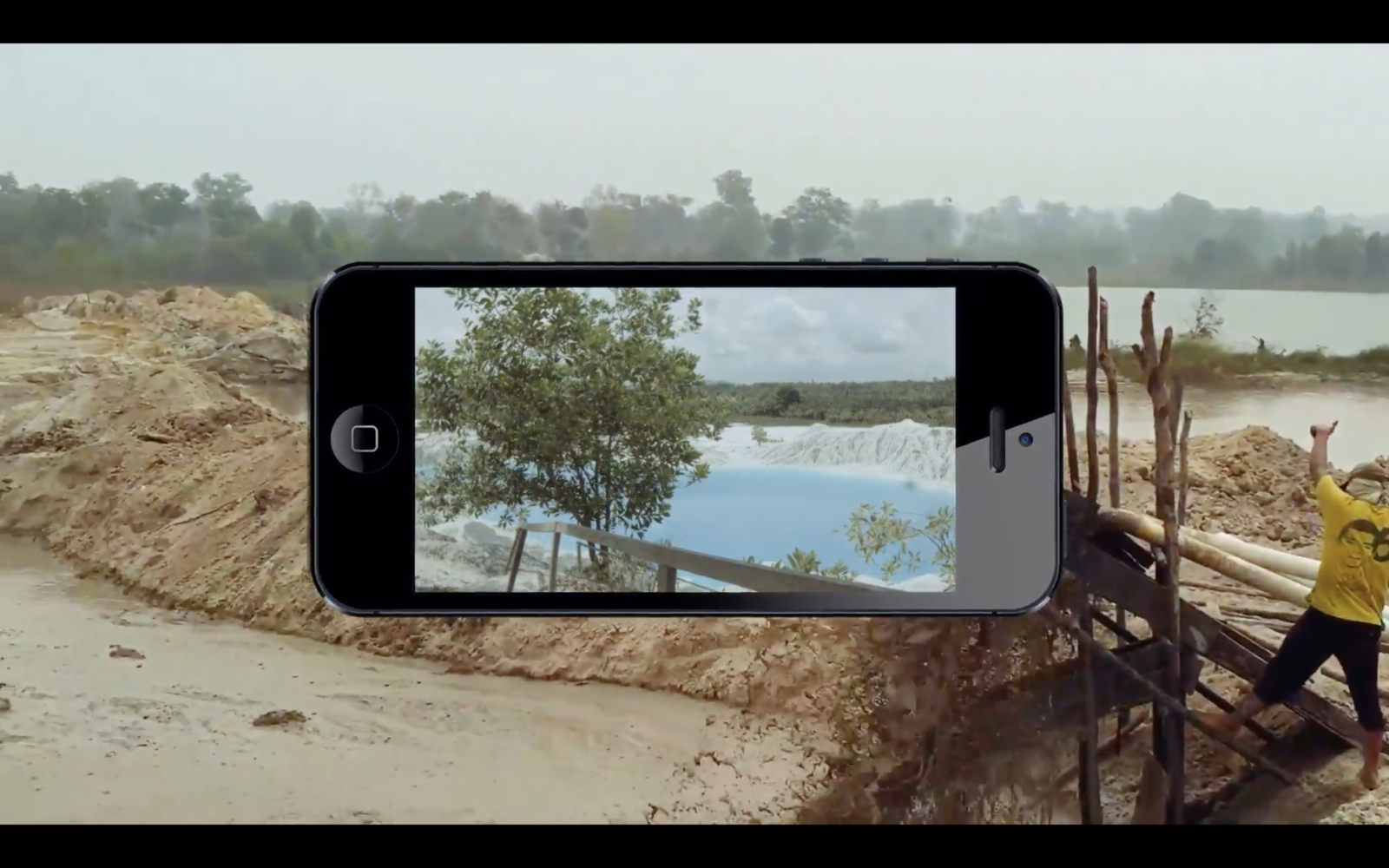Micropolitical and Holistic Makings of Ecopedagogies
Text
“[W]e urgently need a science that honors and respects the unity of all life, recognizes the fundamental interdependence of all natural phenomena, and reconnects us with the living Earth.”1 (Fritjof Copra)
Today’s cognitive capitalism operates on the logic of separationism that demands self-commodification and self-representation: a logic of exteriority that, as we know, is also engraved e.g., by social media. Equally, omnipresent media consumption, spectatorship, observation, by-standing and the outside view are qualities that society today is abundantly saturated with, and that help the efforts of late cognitive and data capitalists’ to construct hyper individualism, separation, and apathy, emotional states that manipulate and alienate subjects from their own social and expressive efforts.
A fertile ground to nourish post-truth narratives, symbolic violence, populist, right-wing, identarian, racist, sexist, and nationalist trends, and to blindfold towards exploitative politics and commodification of the planet. Humanity lives in a precarious planetary and social existence, that is governed by the rationale of power-seeking, exploitive neo-liberal, data and cognitive capitalism and its global commoditisation of life and nature. Not least the present Covid-19 Zoonosis reveals the delicate vulnerabilities and deeply interwoven interdependencies of humanity and its co-existence within the planetary community of life.
This dicey and highly charged political climate cries out for a fundamental socio-political and cultural shift that redefines the very nature of relationships with the Other – human and more-than-human alike.2 Correspondingly, such a reorientation requires profound ontological and epistemological changes in cultural practices: away from a neck-up disembodied awareness and critique, away from a reactionary passive consumerism and the attitude of the observer.
Instead, a shift is needed towards a cultural production of knowledge that can mobilise and activate the theories and issues at stake and that, as I propose, takes a holistic experiential consciousness-raising to heart. Such knowledge production welcomes transdisciplinarity, aesthesis (Greek: aesthēsis: with sensation), embodiment, and situatedness. An epistemology and ethics that calls for a knowing and being with the world. One that expands beyond the closed margins of the ‘self’, that disrupt limiting binaries and fosters sharing and openness for pluriversal and polyvocal viewpoints and an experiential criticality. It is a search for hybrid alternative epistemological and ontological (re-)imaginations, a transformative pursuit to act and perceive the world otherwise and in fairer ways.
A holistic attitude that does not separate the mind from the body, or emotion from reason. An approach towards an empathic knowledge formation that celebrates heterogeneity and that is in reciprocal intertwinement between learning and acting, that by learning acts and by acting learns. A practice towards creating conscientization, towards a critical awareness of being interconnected with all sentient beings and beyond.
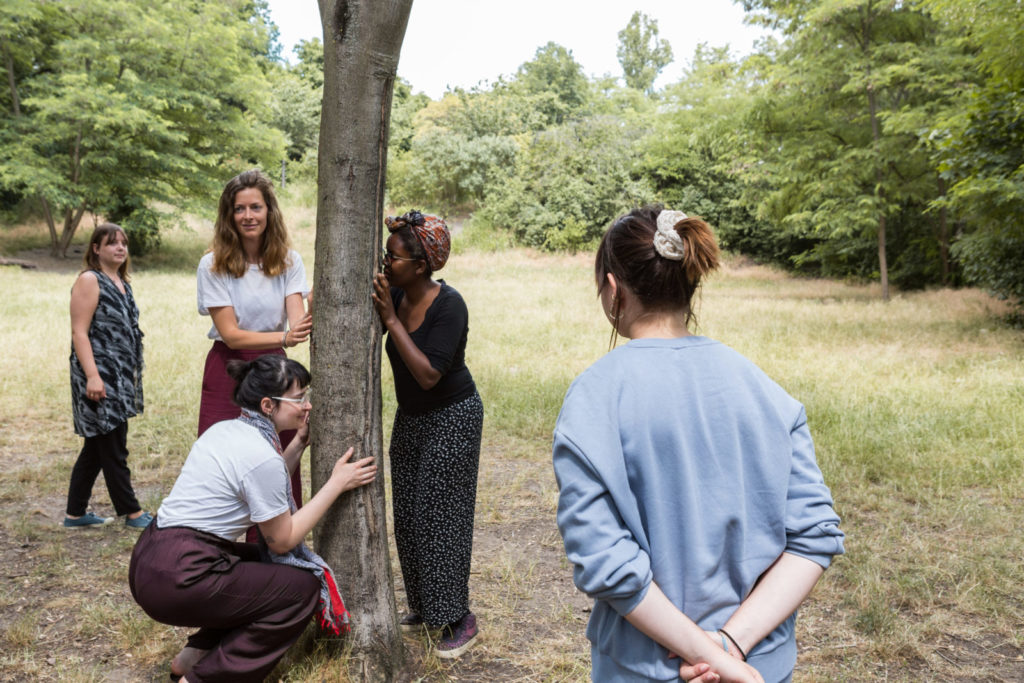
My own practice strives towards the deepening of the relational and deals with contemporary ecological emergencies in a post-representational, micropolitical and holistic way. Holistic, I not only understand as relating and actuating both the body and mind, but equally in the more general sense, as the accentuation of the inter-relational and inter-connectedness of systems as whole and not as divided component parts. This is not comprehended as a unifying universalist idea, but rather one that emphasises and embraces heterogeneity. A practice towards the decolonisation of the subject and the making of eco-literacy.3 Decolonization I approach phenomenologically, in the sense of delinking from capitalistic appropriations in the process of subjectivation and to overcome and challenge hierarchical and binary realities of Othering and otherness.
My work is informed by an extended interpretation of the idea of conscientization, a concept by the Brazilian educator, activist, and educational theorist Paulo Freire from the 1960/70s that he laid out for example in his book Education for Critical Consciousness from 1974. His lifework is based on radical pedagogy and promoted critically conscious, active, non-apathic civilians. Conscientization (Portuguese: conscientização), creating critical consciousness, is an educative tool to address and experience a “reading of the world” that endeavours not only being in the world but being with the world, or what multispecies feminist theorist Donna J. Haraway would call “worlding with”.4 Conscientization motivates new levels of critical awareness through communication, and reflection as methods for self-empowerment to shift from being a subaltern object to being a subject with the right to be in resistance and define one’s own reality. Conscientization encourages the ability to get into a dialogue with others and with the world, and to replace disengagement with that of full engagement.
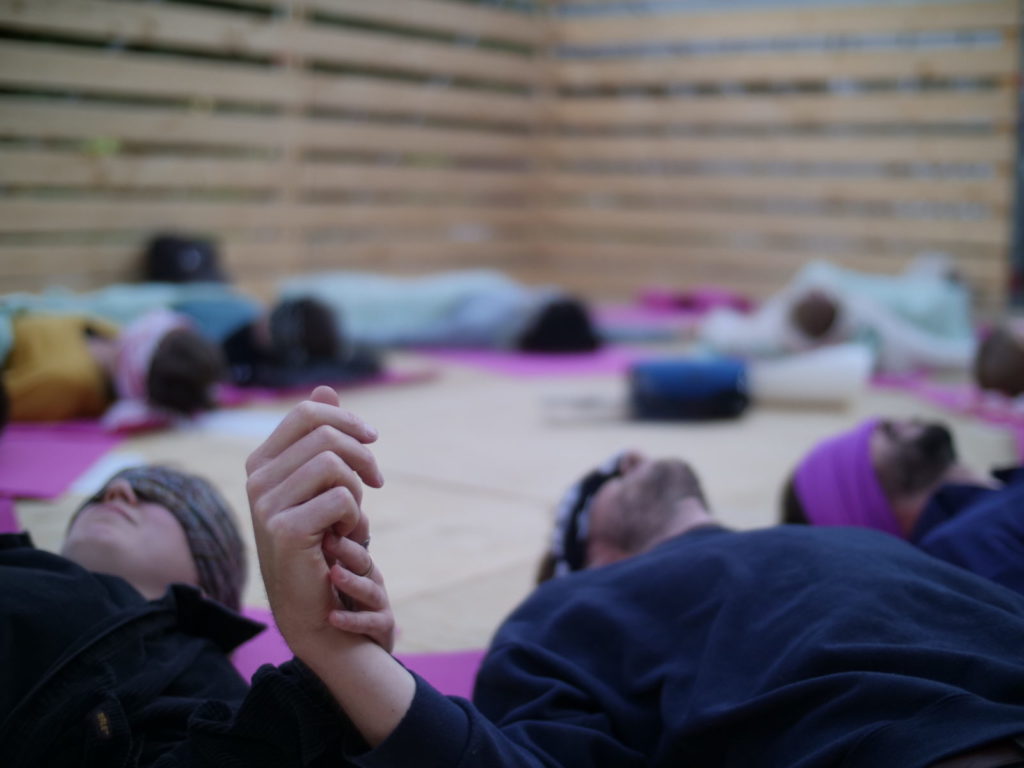
My approach on conscientization especially values the sensual and experiential. It “in-corpo-rates” what I call a relational –versus informational– knowledge formation, and that embraces the body, or rather as Freire calls it the “corpo consiente”, the knowing body.5 Scholar Lisa Blackman rightly calls the body “the central metaphor of political and social order”.6 I assume the body as political, soaked through with social and political tensions; it is a critical starting point to open pathways for thinking about the relation of micro- and macropolitics and ecopedagogies. My practice seeks to activate and critically reflect the micropolitical with a methodological orientation and emphasis towards pre-individual affects on our levels of desires. Brazilian psychoanalyst, curator, writer, and theorist Suely Rolnik’s understanding of micropolitics e.g., in her elaborations on “the colonial capitalist unconsciousness” and its politics of desire are highly inspirational. She argues that an “active micropolitics” implies conscious awareness and being in tune with the knowing body, and that it constitutes the only way for change as it means to stay with the question mark7, staying with the trouble (reminding us again of Donna Haraway’s Staying With the Trouble).8 Active micropolitics holds the potential for new configurations of the unconscious and its relation to the world. A resource for breaking from the dominant references, a chance to gain new subjectivity, and for the resistance and liberation from what Rolnik calls the “colonial capitalistic unconscious […] to designate the dynamics of the unconscious typical of the existing regime. The main feature of the colonial-capitalistic unconscious is the reduction of subjectivity to its subject’s experience”.9
The concept of active micropolitics is a productive tool for critical thinking about possible and future ways of relating and being together, for fostering self-empowerment, trust, empathic exchange, and sensuality for a being with the world and inhabiting this planet.
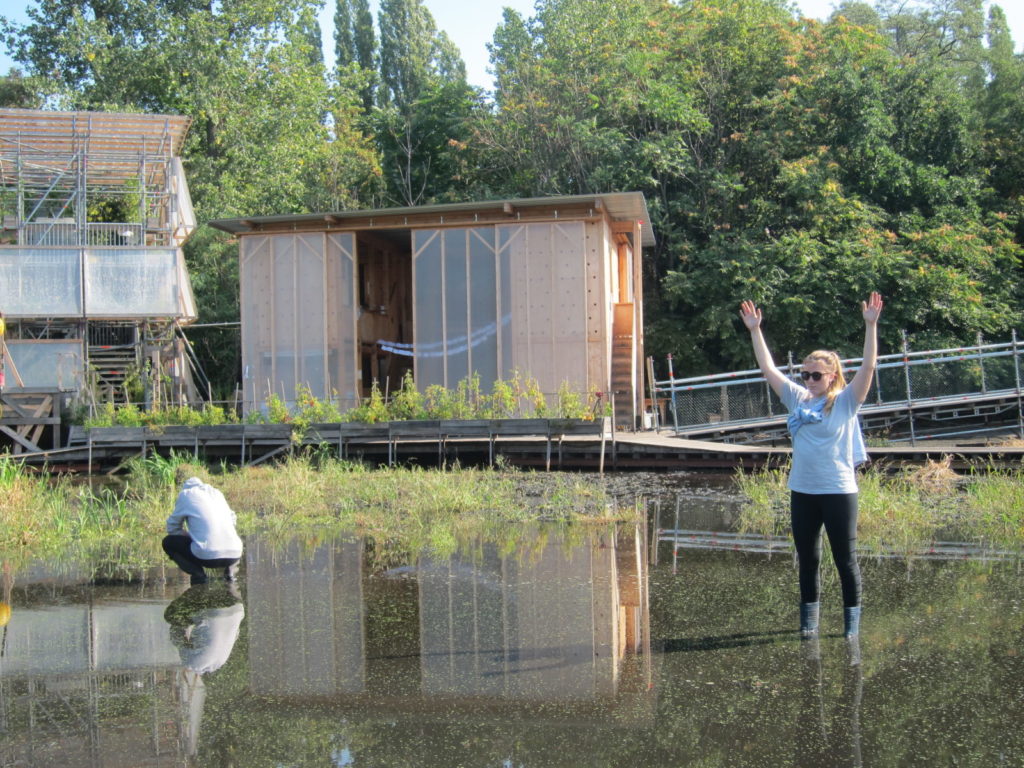
These are some of the topics that I for example engage in the ongoing Radical Empathy Lab, that I founded in 2016 as a nomadic social and research laboratory. It allows me to move between analysis, workshop, and experience and to activate holistic, experiential, and relational forms of knowledge formation. The lab seeks to give space for micropolitical, affective, and holistic knowledge formation and to stimulate a relational co-learning. Radical is understood in its Latin etymological sense of radix, the root: starting with the root, the self. Empathy is less understood as merely altruistic or as an emotional equivalence, but rather in the understanding of scholar and theorist Carolyn Pedwell who pleads for a decolonisation of the notion towards “affective translation”.10 It is in this vein of thinking, that I comprehend and seek to activate empathy as a negotiation with the Other (human and beyond), by accepting difference and possible “foreignness” and to embrace that difference as the potential for dialogue and affective growth.
In my artistic and curatorial work and research I am interested in non-representational, ontological, and epistemological approaches and practices to counter capitalistic and dominant systems, the colonization of our desires and imagination and the trends of reactionary an-aesthesia. I seek to create holistic spaces and conditions for ontological processes as possible alternative ‘epistemological vehicles’ in the formation of knowledge and in engaging with the world; to establish an alternative practice to purely product-oriented representation.
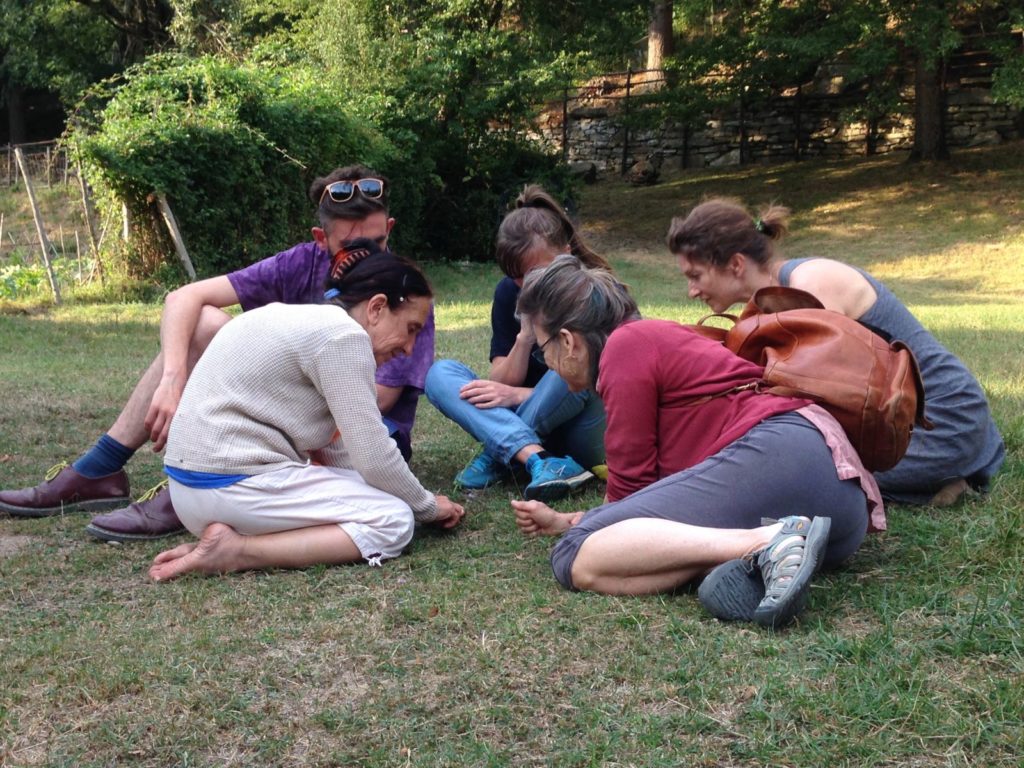
An ecopedagogy that starts on the micro-political and that seeks to unfold towards a post- anthropocentric view, a macro-political awareness for the planetary ecology and the messy entanglements of its co-existing and interdependent beings. I understand ecology as the entwined relation of all living organisms to one and another and to their physical surroundings –including the social and human organism– and in the Guattarian sense as an interwoven environmental, social, and mental dimension.
Being a hopeless optimist, I believe –even if only on a molecular scale of an art project– that by creating the conditions for, and holistically activating a critical awareness of one’s interconnectivity and interdependence as a part of this ecology of life, it can support to not only create imaginaries, but with practice and over time, it might encourage micropolitical decision making and actions towards embracing, worshipping and protecting these delicate entanglements, and that it might lead to co-construct care for them on the macropolitical plane.
In my practice I wish to micropolitically and bio-sensibly activate a relational, an entangled internal and external activation of knowledge that sees to embrace the multiple dimensions of the planetary interdependent living system. Through the collective process of practicing a micro-political conscious self-knowledge and construction of the self, a transformative process of thinking and learning and of connecting experience with place might encourage an intuitive rationality. A biophil rationality, that embraces and connects with the community of life on multiple dimensions: cognitive, logical, aesthetic, bodily, emotional, interpersonal, social, spatial, and ecological.11
Through the construction of shared affective experiences, and through a processual learning by doing (that by doing learns), shared meanings are created, that with practice might bring an ethical sensitisation for the interlinked macropolitical ecological, social, and affective dynamics.
A meaningful knowledge formation is based on the development of personal meaning and aspiration. In the pursuit for micropolitical ecopedagogies, holistic cultural practices might help to create these aspirations for creating a reality we want to live in. They might help to better understand life experiences, to develop the capacity to feel and intuit, to perceive, to create and to relate. Micropolitical and holistic ecopedagogies may encourage alternative modes of imagining, thinking, and a being-with the world. A formation of a critical consciousness that may carry the potential to extend from the individual to the collective, towards a social transformation and an encouragement for ecoliteracy: the understanding of the natural systems that sustain life on earth; the interactions and transactions within and between the biological and ecological systems. To me, micropolitical and holistic makings of ecopedagogies offer essential starting points in the cultural formation of knowledge towards a planetary consciousness and an embodied planetary citizenship and stewardship.
Notes
- Fritjof Copra, The Web of Life, New York: Anchor Books, 2010, p. 26.
- Introducing the ‘Other’ written in upper case, offers an additional subtext and layer of reflection that embraces the notion of Otherness and Othering. The intellectual history and concept of Otherness is a massive field of enquiry which cannot be elaborated further in the scope of this article.
- The term ‘ecoliteracy’ was coined in the 1990s for example by educator and environmentalist David W. Orr and Fritjof Copra, a deep ecologist and director of the Centre for Ecoliteracy in Berkeley, CA. See for example: David W. Orr, Ecological Literacy: Education and the Transition to a Postmodern World, New York: S.U.N.Y. Press, 1992, and Fritjof Copra, op. cit.
- Donna Haraway, Staying with the Trouble: Making Kin in the Chthulucene, Durham, NC: Duke University Press, 2016.
- Paulo Freire, Education for Critical Consciousness, London / New York: Bloomsbury, 2013 [1974], p. 67.
- Lisa Blackman, The Body: The Key Concepts, Oxford / New York: Berg, 2008, p. 17.
- Suely Rolnik, “Thinking from the Knowing-Body. A Micropolitics to Resist the Colonial-Capitalist Unconscious” [talk], Turning (to) Archive. Institutional Histories, Educational Regimes, Artistic Practices and Politics of Remembrance, Academy of Fine Arts Vienna, April 2015.
- Donna Haraway, op. cit.
- Suely Rolnik, “The Spheres of Insurrection: Suggestions for Combating the Pimping of Life”, E-flux journal, no. 86, November 2017.
- Carolyn Pedwell, “Decolonising Empathy: Thinking Affect Transnationally”, Samyukta: A Journal of Women’s Studies, vol. 16, no. 1, January 2016, p. 20.
- See also María de Los Ángeles Vilches Norat, Alfonso Fernández Herrería, et Francisco Miguel Martínez Rodríguez, “Ecopedagogy: A Movement between Critical Dialogue and Complexity: Proposal for a Categories System”, Journal of Education for Sustainable Development, vol. 10, no. 1, 2016, p. 185.
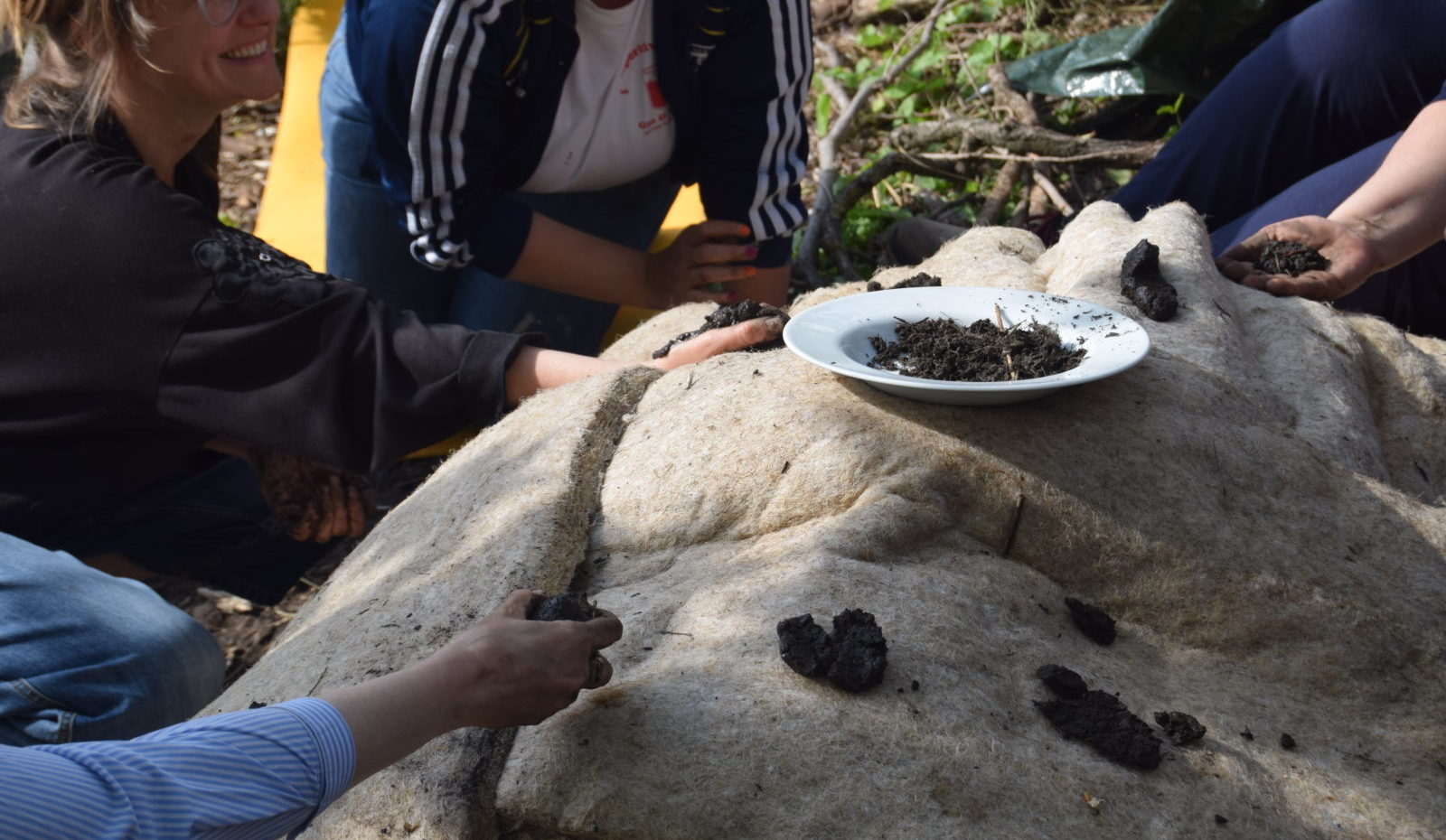
 Back to summary
Back to summary 